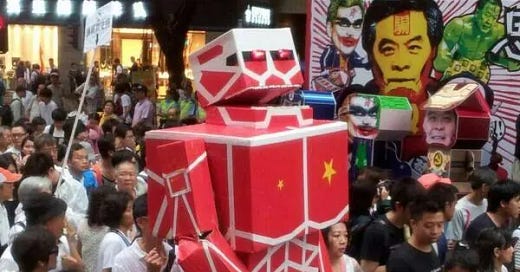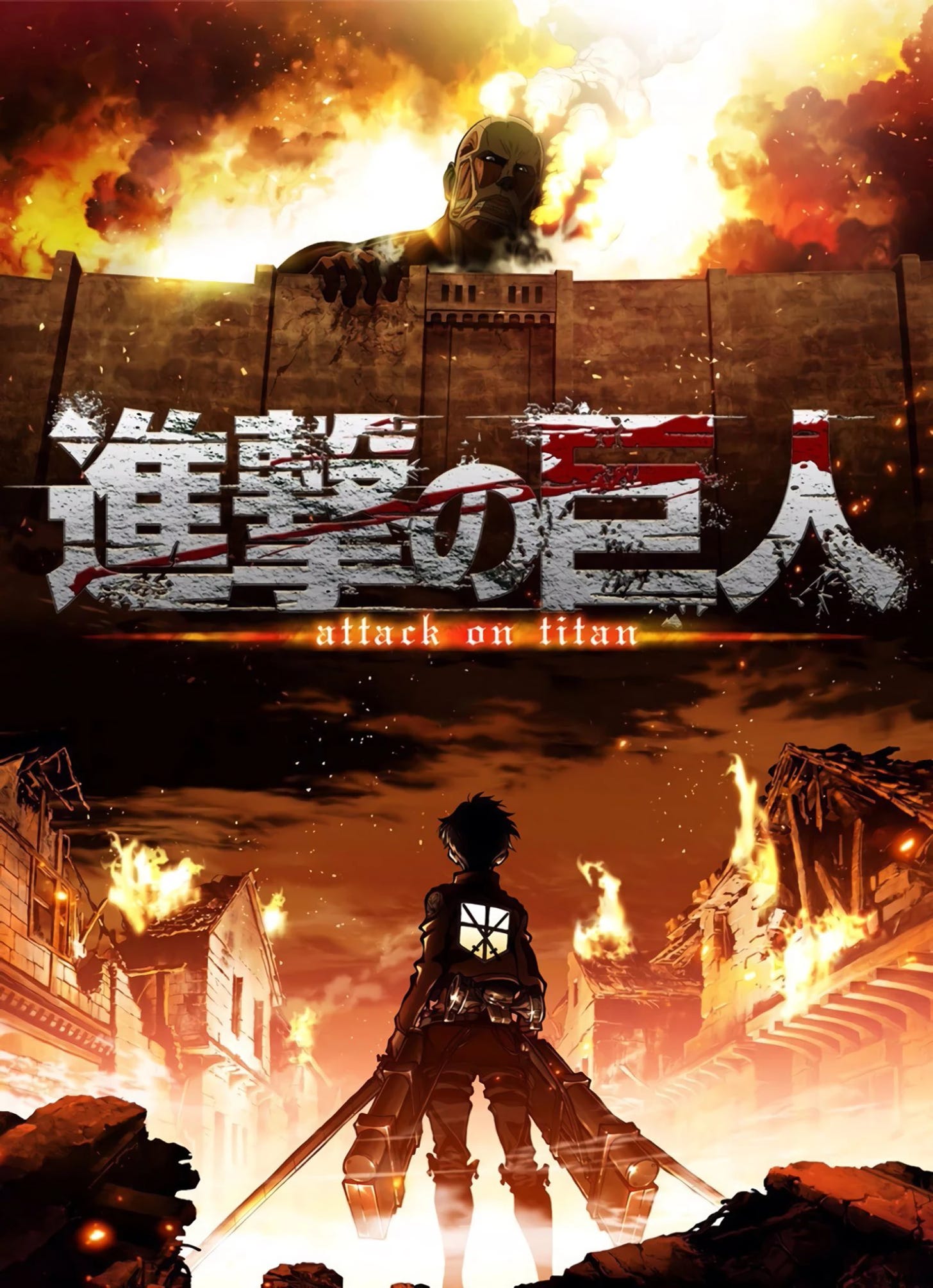Attack on Freedom - How an Anime Fought Against Chinese Censorship
"Attack on Titan" became a cultural phenomenon at the intersection of art and politics, banned by China after becoming a symbol of resistance for Hong Kong.
The Japanese phenomenon Attack on Titan ended its television run with a 90-minute special this past Saturday, November 4th. First published in manga format by author/artist Hajime Isayama in 2009 (now having sold around 110 million volumes worldwide), this electric franchise took the world by storm upon the anime's debut in 2013. Nominally about a group of humans living behind a series of walls and fending off grotesque, man-eating giants, the series opines on many hot political topics, including war, genocide, technological development, ethnic/racial discrimination, economic inequality, and nationalism. Naturally, something so political and popular with young people would attract the attention of the world's foremost censorship experts - the Chinese Communist Party. As we celebrate (or mourn) the end of arguably the 21st century's greatest animated show thus far, it's imperative to reflect upon the unfortunate souls who have their liberty to enjoy art stolen from them by a totalitarian power and how the CCP yet again attempts to quash dissent through censorship.
Attack on Titan was outright banned in China in 2015 (along with several other iconic anime series such as Death Note, High School DxD, and Sword Art Online, as well as live-action series like The Big Bang Theory) following the institution by the Ministry of Culture of a regulation limiting the distribution of foreign streaming content. Under the regulation, companies hosting content that depicts "violence, pornography, terrorism and crimes against public morality" can be punished (what exactly constitutes "punishment" is unspecified).
Attack on Titan contains plenty of violence, to be sure. However, other violent series like Demon Slayer (some scenes are touched up to cover cleavage) and Tokyo Ghoul get a pass (in China, some violent series can air if the blood is changed from red to white). As the plot unfolds, there are several horrific acts committed by characters in the midst of battle and against civilian populations that most would agree fit the definition of terrorism. However, one would have to stretch to ridiculous lengths to find anything that could be construed as pornography. Public morality is an incredibly nebulous concept, particularly when employed by an entity such as the CCP - anybody can and will find something immoral in pretty much any complex work of art, especially when they have a vested interest in using their power to control large populations. Whatever other reasons China may cite for the ban, the show's popularity with young people and political protesters in Hong Kong is so apparent that it cannot be ignored.
In 2013, a story was published in the popular Hong Kong newspaper am730 in which young Hong Kongers compared themselves to the people inside the walls and the invading titans to mainland China. One man quoted in the article asks, "Being invaded by giants, should human beings continue to stay behind, or would they rather take risks to defeat the giants and eliminate the threat?" On July 1st, 2013, during an annual pro-democracy demonstration held on the anniversary of the British handover of Hong Kong to China, a sculpture resembling the Colossal Titan, Attack on Titan's most recognizable "character," marched along with tens of thousands of other protestors, attracting great attention due to its inclusion of yellow stars (similar to the ones on the Chinese flag) and hammer and sickle markings, leaving little up to interpretation. The artist, Kacey Wong, meant for the sculpture to symbolize "the threat posed to Hong Kong by mainland China's rapid growth as an economic superpower" During an October 2014 demonstration protesting CCP legislation allowing them to screen candidates for Hong Kong's head of government, one student compared herself and her fellow protesters to the people inside the walls, asserting that "China's recent economic growth and rising international influence had made it a 'Titan' [that is now] assaulting the democracy within Hong Kong's walls." These associations have not dimmed in recent years either. A column in the Asahi Shimbun from 2019 referenced the show when discussing that year's mass protests against a bill that would allow for easier extradition of "criminals" from Hong Kong to the mainland.
While the political metaphors and resonance with democratic movements are obviously objectionable to the CCP, there is some historical tension at play that cannot be ignored. One character in the series is modeled after notable Japanese military officer Yoshifuru Akiyama, who was a member of the Imperial Japanese Army First Division during the First Sino-Japanese War and may or may not have helped carry out mass killings of civilians in China during the Port Arthur Massacre. He also fought in the Imperial Japanese Army alongside other nations, including the United States, during the Boxer Rebellion, when China attempted to shake off what they viewed as unfair economic and trade policies imposed upon them by foreign countries. Isayama did not help himself by openly stating that he respected Akiyama for "leading such a simple and frugal life," for which he received death threats. Obviously, someone making a hero out of a person who may have played a role in a traumatic event for your people warrants some feelings ranging from discomfort to outright disgust, but given the CCP's propensity for historical censorship and revisionism, one cannot necessarily trust their judgment in this regard.
Attack on Titan's popularity and conspicuous focus on freedom makes it a perfect target for totalitarian regimes insecure with their own position. China's aging population and growing youth unemployment mean the Communist Party's hold on power is more tenuous than ever. One can understand why they'd be sensitive - as we've seen in Hong Kong, powerful, well-done art can inspire and galvanize resistance. Continuing with their fool's errand, the CCP recently prosecuted a Hong Kong man for importing children's books in which a beleaguered flock of sheep battle a tyrannical pack of wolves through political action. This is not the action of a healthy entity. One would think it would be simpler for these governments to give their people more of a say in how they are governed. A world in which people can read what they want, watch what they want, and experience what they want (without violating the consent of others) - is that not such a better world than one in which people live in constant fear? A world in which people are under attack from literal or metaphorical giants? These are the questions Attack on Titan and many other works banned by China and other countries all around the world seek to answer. It might be amusing to chuckle at something like The Big Bang Theory being banned for public immorality, but a government willing to do something like that is ready to do much worse.
This article was written by Jack Gillespie.





